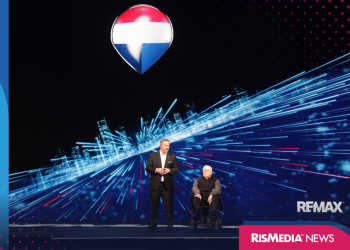This month’s National Association of REALTORS® (NAR) Power Broker Roundtable discusses how to leverage your value in the face of evolving business models.
Moderator
 Jim Imhoff, Chairman, First Weber, Madison, Wis., Liaison for Large Firms & Industry Relations, National Association of REALTORS®
Jim Imhoff, Chairman, First Weber, Madison, Wis., Liaison for Large Firms & Industry Relations, National Association of REALTORS®
Panelists
 Rosey Koberlein, CEO, Long Companies, Tucson, Ariz.
Rosey Koberlein, CEO, Long Companies, Tucson, Ariz.
 Nancy Nagy, CEO, Berkshire Hathaway HomeServices KoenigRubloff Realty Group, Chicago, Ill.
Nancy Nagy, CEO, Berkshire Hathaway HomeServices KoenigRubloff Realty Group, Chicago, Ill.
 Gary Scott, President, General Brokerage, Long & Foster, Chantilly, Va.
Gary Scott, President, General Brokerage, Long & Foster, Chantilly, Va.
Jim Imhoff: First off, when we talk about dealing with new business models, I’d like to banish the term “disruptors.” What we are really talking about is alternative business models—firms doing real estate in ways that veer away from the traditional models we know. They’re not necessarily better or worse. Time will tell their story. What’s important to realize is that they pose no threat if we, as brokers, do a credible job of defining our value proposition—the distinct advantage we bring to the table—first to our agents, who are our primary customers and, by extension, to buyers and sellers.
So today, let’s talk about leveraging our value in the age of the shiny, new penny. Rosey, why don’t you start us off? What is a value proposition, anyway?
Rosey Koberlein: You hit the nail on the head, Jim—value proposition is what you bring to the table. Experience. Professionalism. Support. The shiny alternatives tell a good story, but when you peel back the onion, there’s not a lot at the core. Traditional companies, on the other hand, have historically had a tough time tooting our own horns—and, yet, we have the culture and synergy that come from long years of experience, and a history of the exceptional relationships we’ve built in the communities we serve. I take great pride in that as a leader, and I want to be sure that everyone in my company can stand up and tell that story.
Nancy Nagy: We’re not concerned with shiny, new pennies. We know we have a story worth telling. We recruit right, we make a huge investment in tools and support, and we have a fantastic leadership team that develops the best agents in the business and keeps them at the top for the long term. We have a fine, respected brand behind us and a wealth of resources at hand. We’ve been here for 100 years and we’ll be here for 100 more; and you’re right, Jim and Rosey—bringing our agents together around those strengths is part of what we do as leaders.
Gary Scott: I don’t see these new models as disruptors. I see them as bare bones distractors. Because a good story starts with the basics, and the basics that built our company are pretty simple. We’re in the relationship business, and it starts with building strong connections with our agents. We listen. We pay attention. We’re responsive to what they need and want. Our people know we care deeply about every single one of them, and that’s reflected in our agent surveys. Our job is providing what they need to help them grow and succeed, because their success is our success, and the richness of our past—more than 50 years of service and experience—is an asset no newcomer can match.
JI: So, it’s clear that what we invest in our agents comes back to us a hundred-fold. How do we, as Nancy suggested, rally our troops around our story?
GS: I think we focus on our company culture—that indefinable ecosystem we all live in every day. It’s mentorship and friendly competition. It’s motivating greater accomplishment—and it’s also recognition and reward. It’s awards celebrations, recharging retreats, working together for a cause. These are things that foster pride and camaraderie and inspire continued success.
NN: For the most part, agents get that, I think. We’ve had a few leave for what they think are greener pastures, but we’ve also had a few come back. I think they find there’s no match for what we offer, and it isn’t all about the money.
RK: You’re right. It is about the culture. Anyone can come along and duplicate “stuff,” but in the end, you can’t compete on “stuff.” You compete on professionalism, on knowing the market better than anyone, on experience and a steadfast support system.
NN: That doesn’t mean you rely on reputation. You have to be responsive in the here and now. We take pride in our brick and mortar, for example, but with more agents wanting to work remotely, we’ve been building the systems and providing the tools that are making it easy to do that.
JI: Good point. It strikes me, too, that agents—millennials, in particular—are mindful of giving back to the community. They are very invested in our fundraising efforts and the support we provide through our company’s foundation.
NN: That’s part of company culture, as is the effort we make to keep our agents relevant in the long term, especially as new tools and practices emerge. We have a very defined program of continuing education for every stage of every career.
JI: Okay, so those firms that have been around a while can have the edge on culture and experience. How do you articulate and communicate that story in ways that resonate and inspire?
GS: You lead by example. Doing things right is contagious.
RK: You dig deep and figure out what you do that no one can replicate. In essence, you make a promise. And you deliver.
For more information, please visit www.nar.realtor.











